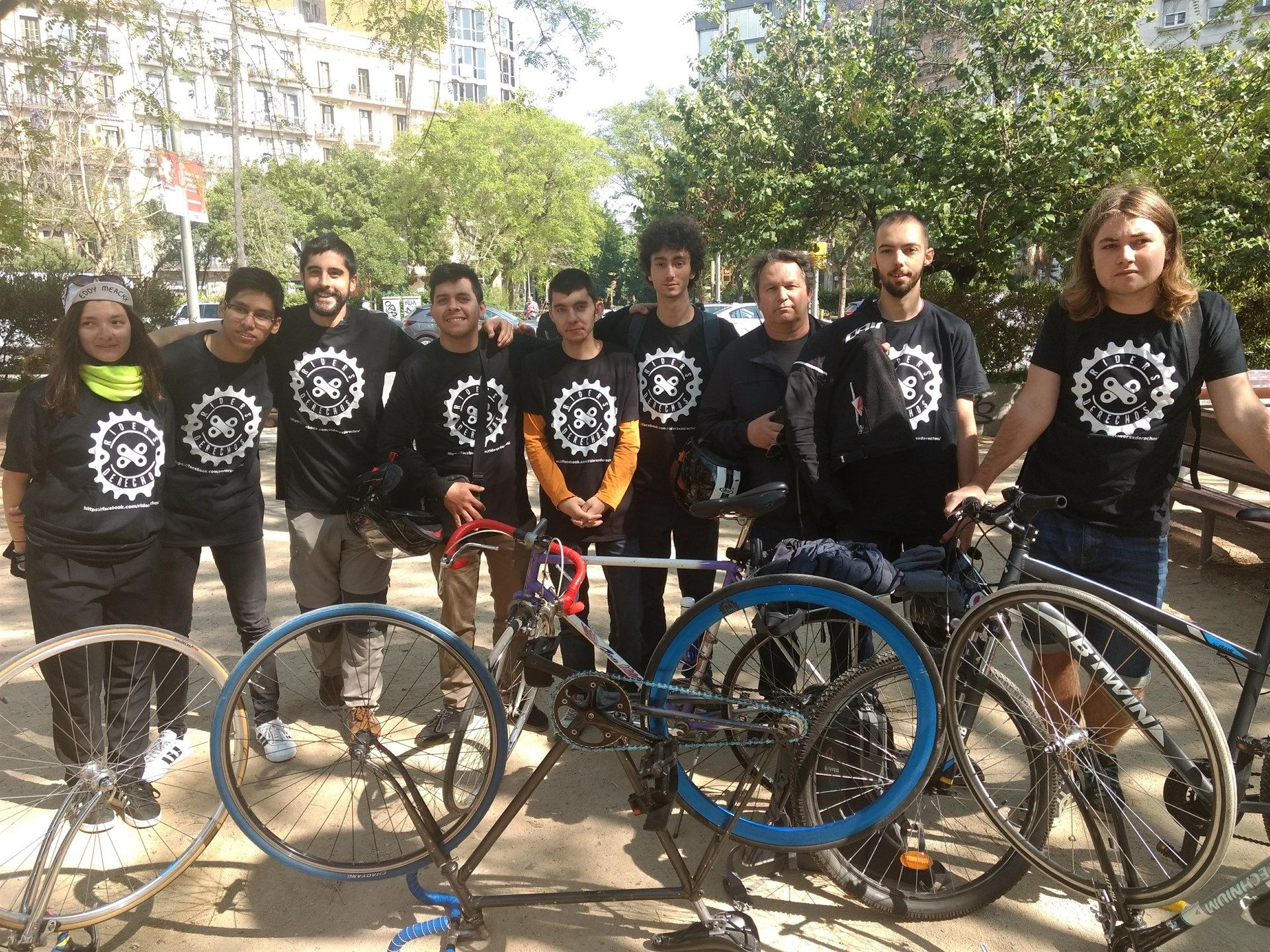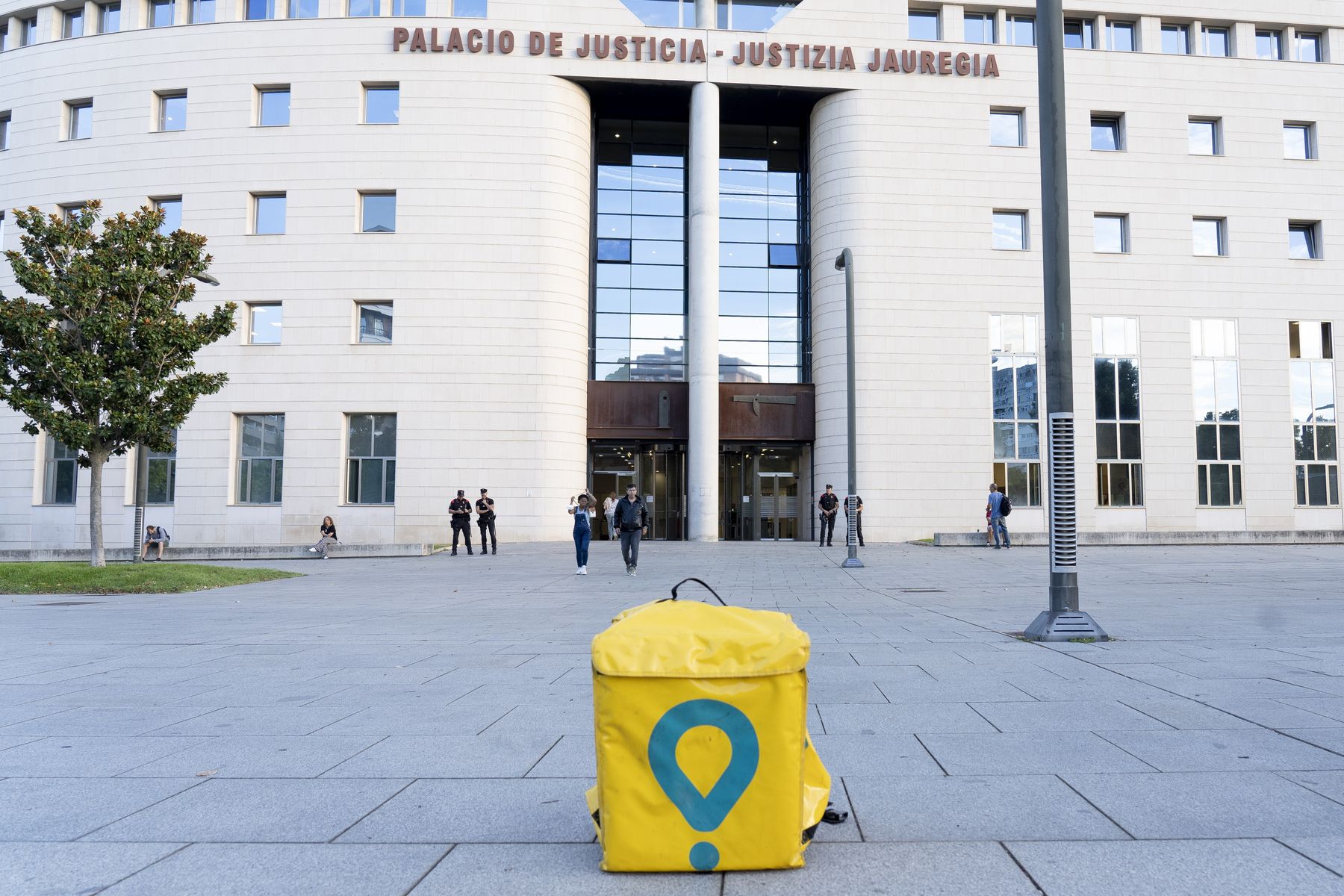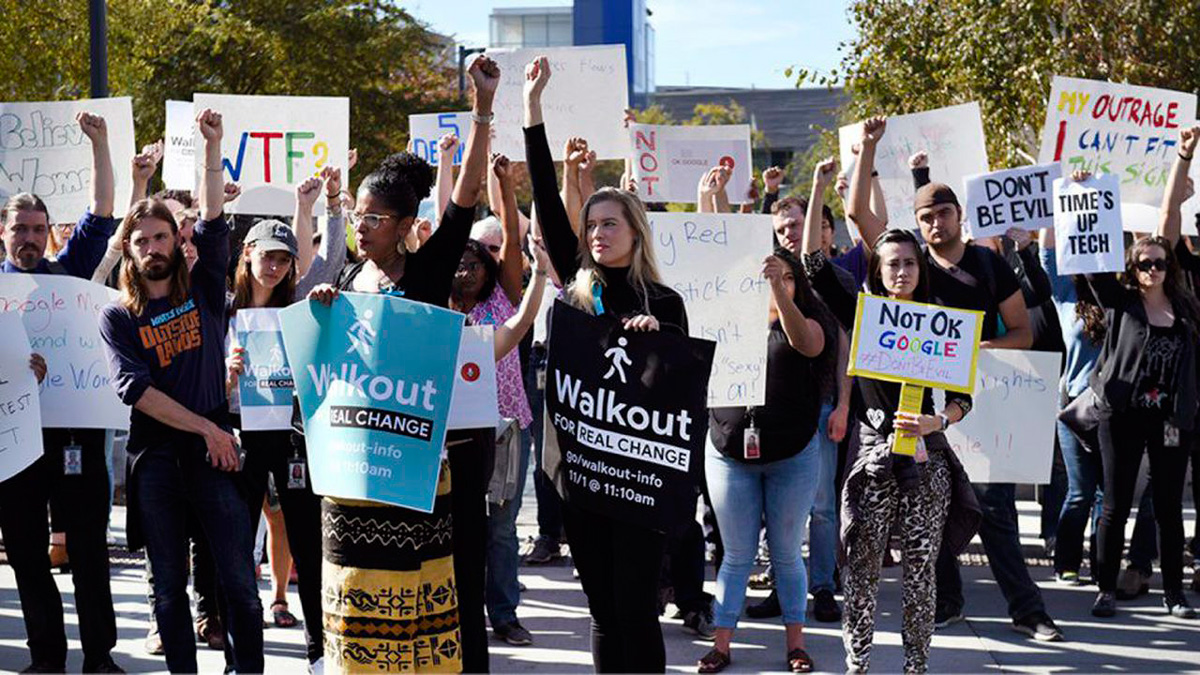Instead of being autonomous, what?
- This is the fourth and final article in a series of four paragraphs. It analyzes Glovo's business model and its relationship with the environment. On this occasion we will analyze the legal situation of the “self-employed” workers of Glovo. We will also look for current and potential business alternatives.

The aim of this series of articles is to give an understanding of what the environment in which Glovo can play in this way is like. The performance of this company has not been matched in the Basque Country, so we must carefully analyse its business model to measure its impact on the economy and social structure. Glovo has obviously taken advantage of the gaps in the law and the economy to build the ecosystem he controls, but at the same time, he must show the image of who does not have a too close relationship with the riders, restaurants and users of the application. Outsourcing the usual costs of a company, it has developed precariousness and the monopoly business model in the economies of several countries. In this last article, we will analyze the legal status of the rider and reflect on how we can protect ourselves from this new form of exploitation.
Contracts and power relations
When he was receiving “training” at Glovo’s headquarters in Vitoria, before he started working as a rider for three months, the interviewer said: “I’m responsible, not boss. It’s not the same.” I wasn't going to be employed. According to Glovo, riders have the ability to choose working hours, they can manage their “micro-jobs” on demand and, above all, they are not under the company’s control.
To answer this, based on the experience that I was a rider to Glovo and the recent rulings against the company Deliveroo in Barcelona, we can draw up a brief list of the main reasons why Glovo riders are employed:
Judicial records in the Spanish state indicate that if the company manages the work, the workers have an employment relationship with the company, regardless of whether the working hours are variable or cannot be decided in advance.
Glovo needs absolute control to ensure quality and convince riders to act at their service in the hardest and most legal way possible
Some of the options are in the hands of workers – for example, workers can accept or deny the working hours offered by the company, or the petitions that come to them – but if they are denied, the company sanctions them immediately. I mean, like any job. Recently, in a trial held in Barcelona, a witness quoted by Delivero responded "no" by being asked about the possibility of workers relinquishing their demands. The company’s representatives “were stunned by the witness’s statement they called in defense of their business model.” Dependency and power are the main characteristics of the relationship between employer and employee, and not the way it is performed.
Other things are not in the hands of the workers. Rider has to do several things: Buy the Glovo yellow backpack, use the app, permanently share its location, be physically in the service area and sign ten minutes before the start of the day, among other things. Every two weeks they have to pay for “using the platform” and, above all, they cannot negotiate the remuneration they will receive for their work. This is clearly not an example of “independent micronegotias”.
Any self-employed worker should be able to find work on his own and in his/her specialty. A friend of mine manages the social networks of the small businesses of the village and offers them their services in their own shops to get customers. Instead, if I were to go into a restaurant with a backpack and a bicycle and offer my owner the delivery of food, I would go home with my bare hands. In fact, I tried to do the same thing, just to see the result, and it was a total failure. The application and the system created by Glovo are essential for the work.
No matter what loopholes Glovo will find in the future to carry out its activity, that will not alleviate the strict control it has imposed on workers. Ultimately, Glovo needs absolute control to guarantee the quality of the service to its customers and convince riders to act at their service in the hardest and most legal way possible.
How did we get here?
We have to understand that this situation is not new. As an American, I was very surprised to learn that in the Spanish State the majority of distributors were self-employed.
Decades earlier, messaging was an industry made up of authentic freelancers. Some workers have explained to me that a long time ago anyone could do the transport of small packages if it was a van. This industry consisted of a group of independent workers who used their personal and professional contacts to obtain customers. They negotiated the prices and decided the routes.
Starting in the 1970s, and especially in the 1980s, these independent workers began to work as “self-employed” for large international companies. The service that served for express mail began to become the current international logistics industry, in the heat of purchases and subcontracting over the Internet. The plural and independent local network disappeared and the large companies — DHL, UPS — strengthened the oligopoly.
According to the study I have carried out, at the time there was no fight for workers’ rights in this industry. Perhaps this has caused the situation of workers to deteriorate in recent decades: all the dealers I have interviewed, many of whom have now left the job and are doing the Glovo rider, have told me that the sixteen hour days are not uncommon, that they have often worked until the vehicles are torn apart, and that in return they receive only tremendous physical and emotional stress and a low wage. In this industry, the workers have no power and the old companies have oligopoly well established. It was a unique space for the rooting of new technology-based companies based on platforms. No one was prepared for battle or listened.
The service that served to deliver urgent postal mail began to become an international logistics industry, the plural and independent local fabric disappeared and the large companies reinforced the oligopoly
This is one of the main lessons to be learned from the evolution of Glovo. If there is no platform for university teaching or self-government, it's no accident, it's not because it can't develop. In fact, in the United States, these kinds of platforms are already underway. Here, there is still no such thing because the workers in these industries have power: they are organised in trade unions and demand dignified treatment.
The Glovo phenomenon has shown us that vultures can easily absorb weak industries with venture capital and sound application. The distribution industry has to be quarantined as if it were a measles outbreak, until the rest of the economy can be integrated. This vaccination will not be easy. It will be necessary to repeat the tiring and important steps that have always been taken: to organise collective power, to disseminate information about the new threat and to bring these companies to court. This is the only way not to extend this exploitation model to every corner.
Alternatives: traditionalists, emerging and idealists
In any case, in the meantime we will have to continue eating, the workers’ struggle is aimed at satiating people. So things, which company can we choose to distribute the food? First of all, some of your family restaurants have their own distribution services. In principle, this option seems a good way to access food. For the distributor, this is a part-time job option and, more importantly, transparency in this type of work environment and close relationships impede the development of exploitative situations.
Secondly, there are franchises like Telepizza and Burger King. They offer their dealers the lowest possible wage, but at least they hire them, so the working hours are limited and there is no fraud in the possibilities offered by the job, unlike Glovo.

In addition, there are three new opportunities to face Glovo’s business model: To those I have called “Uber Urardotuak”, to cooperatives and to technological alternatives. The latter, the technological alternatives, are companies like BlockFood United States: small tech startups, similar to Glovo a few years ago. They say they will solve the problems of hierarchical technology platforms and, in the process, raise new problems, but always using blockchain or other fashion tools. They are based on the same principles as Glovo, and if they achieve something, they will be able to exploit the workers more effectively.
“Uber Urardots” are companies that try to be a new Uber, but unlike Uber, its main business goal is not to become an infamous international supercriminal. These companies offer a slightly better business model, as they work as a real platform to buy or sell second-hand things like Wallapop. There is a possibility of agreeing prices between those who offer and buy the service. In general, these types of companies do not appear to be so harmful, but in terms of exploitation they have limited capacity to deal with Glovo or Uberri. If they had real success, they would surely have the need to become what they want to represent at some point in the process.
Finally, in Europe, in particular, attempts have been made to create horizontal cooperatives to offer services similar to those of Glovo, but without exploitation or hierarchy. Two of these characteristics have been created in the Spanish State: Mensakas in Barcelona and La Pájara in Madrid. CoopCycle, established in the French State, has developed an open source programme for distribution management and, for the time being, they use it to distribute food by bicycle. In short, however, a new application offering the same services as Glovo is planned. At the moment, these services are competitive in terms of price and will be maintained for as long as a minimum number of customers are maintained, provided that workers do not stop controlling the company horizontally. Workers are co-owners of the company and have contracts.
It was a unique space for the rooting of new technology companies based on platforms; no one was attentive or prepared for the struggle.
Time will tell whether these cooperatives are able to fight Glovo and Delivero in their area. As with many cooperatives, I believe that the best option they have is to turn them into the main service for socially conscious consumers. But they may become an exponent of the possibilities of technology and be on the same level as today's tech giants. For this to happen somewhere, it may happen here in the Basque Country, where the cooperative model and workers’ rights have a long history and respect for citizens.
Before finishing, the network Riders X Derechos and the online union are making an effort to sue Glovo and Deliveroo for the situation of the false self-employed. After the success of the past few months, Delivero has had to rehire all the riders who were fired by the union. Furthermore, for the first time it has had to make contracts for them. Complaints against Glovo appear to have similar results and this company may also have to hire its employees.

In the view of some, the aim of this fight is to use new technologies to create real jobs. However, Glovo and Delivero are likely to find a way to exploit employees, as they have done with the self-employed. After all, if the riders were forced to make contracts, they would only have to pay social security, taxes and others. Or, perhaps, they would decide to close the business and lay off all the employees. It is difficult to say which of these options would be the most beneficial to both society and the economy.
Or if not ...
There's also one last option that we rarely remember: you can stop ordering food. We could go out to eat and give ourselves time with friends and family, we can help financially the local businesses that we are part of society and that are so dear, but as soon as we come up with a cheaper alternative, we leave easily. The following questions should not be asked: Is there a need for distribution tasks? Do we really improve our lives, or, as the owner of a restaurant in the United States said, are they just a drug that makes us a gray life creating addiction?
On-demand services isolate us, reduce the economic capacity of society and foster unhealthy behaviour. According to some studies, hard drugs and consumption practices have a similar effect on the brain. At the very least, we can ask whether these services improve our quality of life. Although I am opposed to increasing consumer accountability, it is not bad to remember that sometimes living with less can be better.
The issues mentioned here do not have an easy answer, and the more you know about it, the less I want to offer solutions. Still, I'm eager to see the new ways that workers will develop to address new threats and empower themselves. All I can say is that no matter what solution we choose, it has to be built in partnership. You have to stop looking at the yellow backpacks that go down the street in front of us, as well as the riders who carry the backpacks. We must respond to what is happening around us.
Reporting translated into Basque by Diego Pallés Lapuente
Telelana lan-antolaketa berri bihurturik da langile askorentzat. Koronabirusak hala beharturik, azken urteetan helburu zutena egunetik biharamunera errealitate bihurtu zaie numerikoaren sektoreko oligarkei. Jendea etxetik dabil lanean, internet bidez. AEBetako Silicon Valleyn... [+]





















